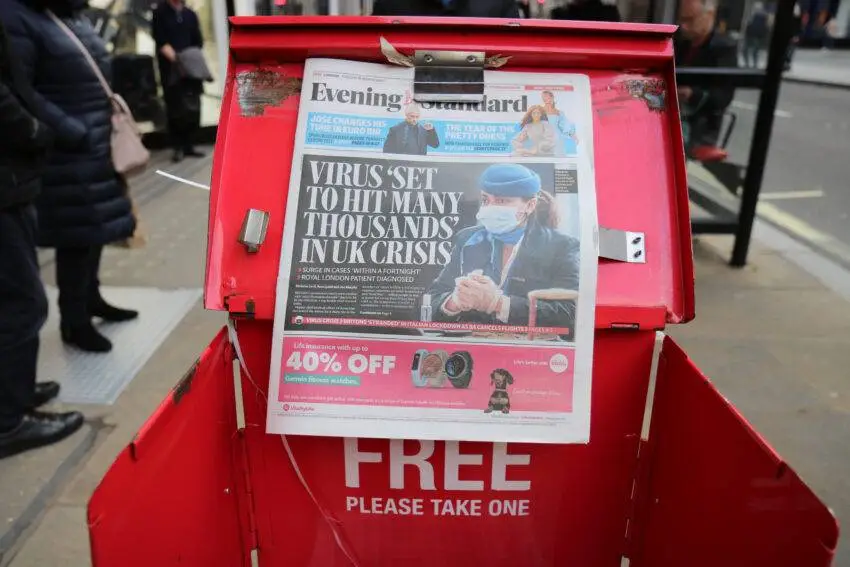The Evening Standard will end its daily print edition due to declining circulation and the impact of remote work.
Moving to a weekly format, the change highlights the ongoing shift in media consumption patterns.
Reasons Behind the Transition
The Evening Standard has announced it will cease its daily print edition, transitioning to a weekly format. This decision is a response to several challenges, including the impact of remote work and improved wifi on the London Underground.
The Standard’s memo to staff cited unsustainable losses and outlined plans to reshape the business to ensure its long-term viability. This move aims to provide more in-depth analysis on a broader range of topics, from entertainment and lifestyle to sports and culture.
Declining Readership and Advertising Revenue
Owned by Russian-born billionaire Lord Lebedev, the Evening Standard has struggled with declining readership and advertising revenue, exacerbated by the COVID-19 pandemic.
The rise of remote work and increased mobile connectivity on public transport have further diminished its commuter audience. In October, the paper’s print circulation fell below 300,000 for the first time since it became a free newspaper in 2009, down from a peak of over 900,000 in 2016.
Economic Challenges
Surging inflation and rising print costs have also impacted the paper.
The Evening Standard has reduced its average page count from 70 a decade ago to around 30. Advertising remains its primary revenue source despite efforts to diversify through sponsored content and live events.
The company claims a monthly UK audience of 12 million, with significant traffic from outside London and overseas.
Financial Support and Losses
To sustain the publication, Lord Lebedev has injected loans totalling at least £29 million over the past two years. The newspaper reported losses of £16.4 million in 2022.
Additional funding is required to maintain operations, and Lord Lebedev has committed to providing support for another 12 months.
Managerial Changes
The Evening Standard, founded in 1827, has experienced significant managerial upheaval recently.
It remains without a permanent chief executive following the departure of Charles Yardley and his interim successor Rich Mead. Editorial leadership has also seen changes with Dylan Jones, former editor of GQ, taking over as editor-in-chief after Emily Sheffield’s brief tenure ended in 2021.
Financial Backing and Challenges
Under Jones, the paper has attracted high-profile columnists such as artist Tracey Emin and journalist Michael Wolff.
Lord Lebedev, who also co-owns The Independent, has faced increasing scrutiny.
His peerage nomination by former Prime Minister Boris Johnson in 2020 sparked controversy, especially after his father, ex-KGB agent Alexander Lebedev, was sanctioned by Canada.
Position on Global Issues
Despite these challenges, Lord Lebedev has publicly denounced the Kremlin and called for an end to the war in Ukraine.
The Evening Standard’s shift to a weekly print edition marks a significant change in response to evolving media landscapes.
With financial backing and a commitment to in-depth coverage, the publication aims to navigate its future challenges.

